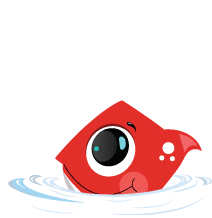

THE BEST LEARN-TO-SWIM CURRICULUM FOR YOUR SPECIAL CHILD
Why Witty Wonders?
Witty Wonders adaptive swim and recreational therapy programme is specifically tailored to meet the needs of individuals with developmental difficulties. Designed with the aim of providing an inclusive and supportive environment, the programme makes swimming and therapy accessible to individuals who may have difficulty participating in traditional programmes.
Witty Wonders achieves this by making modifications to swim strokes, pool equipment, and therapy techniques to ensure that each participant can comfortably and confidently engage in the programme. Our child-centric approach prioritizes active participation, with a focus on enhancing functional play and learning through goal-directed activities. With a team of experienced therapists and trained professionals, the programme is committed to work together with individuals who suffer from developmental difficulties to build their skills, improve overall health and well-being, and enhance quality of life through swimming and recreational therapy.


Child’s independence is always a key concern for families with special needs children, and we aim to support them in achieving this goal by using water play to address issues related to sensory processing, attention, behavior, and social communication skills. By providing individualized approaches to each child, we work towards meeting their unique developmental needs in a supportive and welcoming environment.
Our ultimate goal is to help children with special needs and their families experience the joy of swimming and recreational therapy, while also promoting safety, confidence, and independence in the water.

HOW DO WE DO IT?
The intervention focuses on enhancing the child's motivation and active involvement in activities by tailoring them to their abilities and interests. It also involves building a positive relationship between the child and the therapist or caregiver, providing appropriate challenges to promote growth and development, and providing support and reinforcement to help the child learn new skills. Additionally, the intervention is designed to facilitate the transfer of skills to different environments through ongoing consultation and collaboration with parents, teachers, and other relevant individuals.


To optimize a child's engagement and participation, Witty Wonders create a supportive environment, offer choices, use play-based interventions, incorporate interests, provide support and accommodations, and collaborate with caregivers and professionals.
A "just-right challenge" is a task that is not too easy or too hard for a child. It should match their skills and interests, provide a reasonable challenge, be engaging, and something they can master with effort. This can boost their confidence and encourage them to take on new challenges with focused effort.


The use of positive reinforcement can be effective in promoting good behaviour in children. This reinforcement can be intrinsic or extrinsic and should be given on a variable schedule with decreasing frequency as the skill is mastered. Specific feedback that immediately follows performance can also be effective in promoting good behaviour.
To help children apply new skills in different settings, therapists can work with parents to plan how and when the child can practice these skills outside of therapy sessions. This can improve the child's overall function and increase parent confidence.


A positive rapport between a therapist or teacher and a child is crucial for encouraging and motivating the child. To establish trust, the therapist or teacher will show personal interest and maintain a positive attitude. Trust allows the child to feel safe and take risks, which is essential for engaging them in activities. Studies show that relationship-based interventions that emphasise playful social interaction can improve communication, social-emotional function, and learning.




























